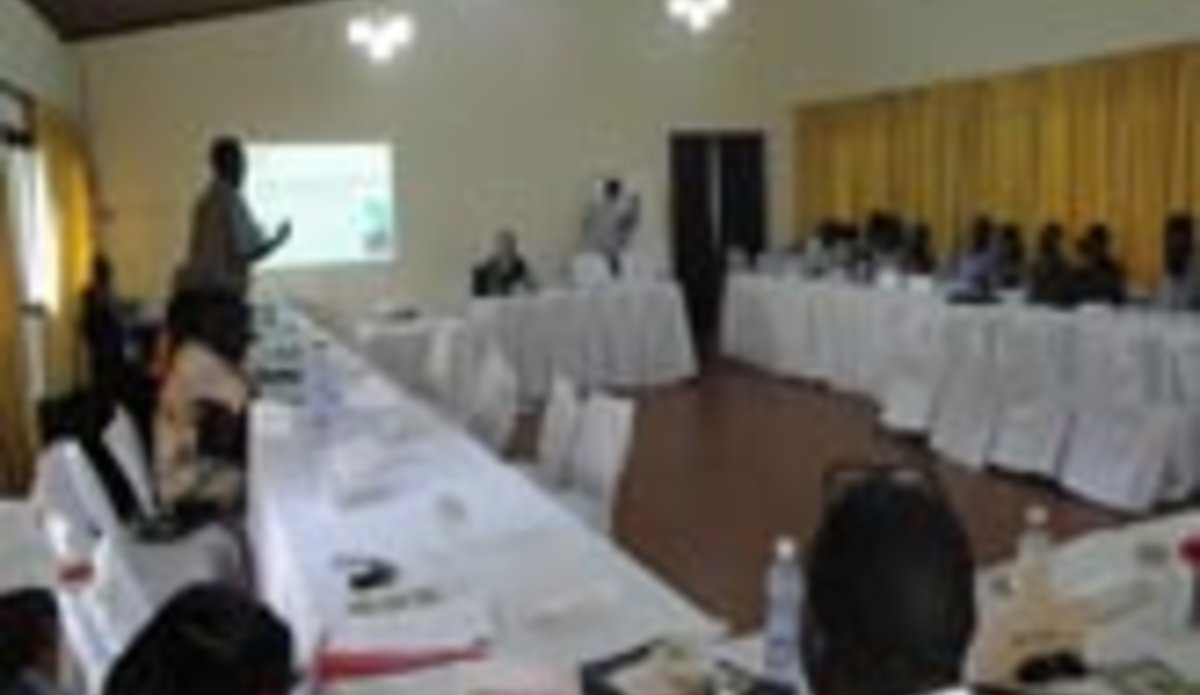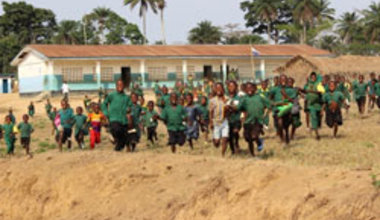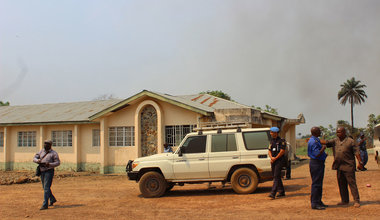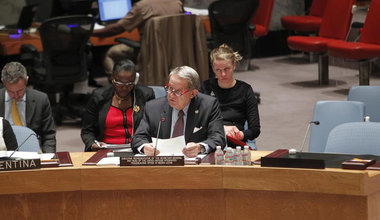SIERRA LEONE AND THE UNIVERSAL PERIODIC REVIEW PROCESS
On the 14th July, UNIPSIL Human Rights Section (HRS) and the Human Rights Commission (HRCSL) hosted the Human Rights Working Group meeting (HRWG). The meeting discussed developments on the Universal Periodic Review process (UPR). The group expressed the need for strategic advocacy efforts to engage government and other key stakeholders to prepare for the implementation of the recommendations after the adoption of the report in September 2011.
The HRCSL, which observed the UPR process in Geneva, presented the key recommendations. The challenges that lie ahead in terms of the implementation of the UPR recommendations were underscored. The HRCSL has already started disseminating the draft recommendations and the HRS plans to support strategic engagements before and after the adoption of the final report.
The Universal Periodic Review (UPR) was established by the General Assembly Resolution 60/251 on the 15th of March 2006. The same resolution also created the Human Right Council (HRC) which replaced the Human Rights Commission (Commission). The UPR is a new, innovative, and unique process that reviews the human rights records of all 192 Members States of the United Nations (UN) in a four year reoccurring cycle. Each cycle sets new benchmarks and precedents, effectively raising the basic human rights standards to which nations are held accountable to.
The uniqueness of the UPR process is also derived from the fact that it requires input from three key tiers of society: the government, non-state actors such as CSOs/NGOs, National Human Rights Institutions (NHRIs), and nations' external partners such as the UN; all of which are responsible for the submission of a report on the prevailing state of human rights within the country.
The Human Rights Section (HRS) of the United Nations Integrated Peace-building Office in Sierra Leone (UNIPSIL) has been deeply involved from the outset with Sierra Leone's reporting obligations to the UPR process. The HRS has been instrumental in the mobilization of government and other stakeholders for the UPR process. It has provided these stakeholders with extensive technical and some financial support so that they can fulfill their UPR obligations. The most pertinent of these stakeholders is the Human Rights Commission of Sierra Leone (HRC-SL). The Human Rights Commission of Sierra Leone (HRC-SL) is an independent statutory body that is mandated to protect and promote human rights within the country. Through its quasi-judicial powers the HRC-SL is the prime candidate and natural partner of the HRS in all its endeavors
The HRC-SL has played an instrumental role in the dissemination of information and education of various stakeholders on their obligations for the UPR process and most significantly, taking ownership of it as a nationally owned and implemented endeavour. The HRC-SL itself has submitted a report on the state of human rights in Sierra Leone to the HRC in Geneva.
HRS and the HRC-SL joined forces for the implementation of capacity building measures for both Civil Society Organizations (CSOs) and the Government of Sierra Leone (GOSL) so that they can fulfill their obligations towards the UPR process. This included consultative workshops and meetings with various stakeholders; namely the State House – Office of the President, Ministry of Foreign Affairs and International Cooperation (MFA&IC), the Human Rights Secretariat of MFA&IC, the United Nations country Team (UNCT), various CSO representatives and umbrella groups, and the media, to ensure not only their substantive participation but also that the processes is nationally owned, driven, and implemented.
These endeavors culminated in a series of broad national consultative workshops with all relevant stakeholders in which CSO representatives, the HRC-SL, and the Human Rights Secretariat of MFA&IC compiled and gathered various points of view, concerns, and critiques, of the prevailing human rights situation in Sierra Leone. The compiled information has been subsequently used in the drafting and adoption of the three different levels of required reporting/documentation for the UPR in Geneva.
The HRS has also been instrumental in broadening the scope of participation and support from other bilateral and multilateral development partners of Sierra Leone. These entities have provided substantive support to the UPR process, ranging from financial support for the Commissioners of the HRC-SL to be able to travel to Geneva and be present for Sierra Leone's review that took place during the 11th UPR session on May 5th 2011, and witnessing the validation processes of the three required levels of reporting/documentation.
Thanks to all of these interventions, Sierra Leone's UPR review took place on the 5th of May 2011 and has been praised as a success due to the transparent nature of the entire process and the pro-active involvement of all stakeholders.
 UN
UN





